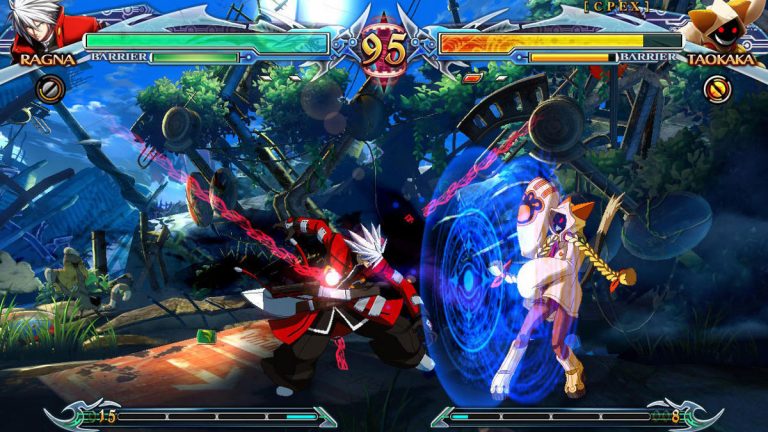Sega Sammy announced on July 4 that its subsidiary Atlus returned to profitability in the fiscal year ended March 2025 (as reported by GameBiz). Atlus posted a net profit of 854 million yen (roughly $5.9 million), which is a big turnaround from the previous year’s deficit of 757 million yen (about $5.2 million).
In fact, Atlus had been reporting losses for years prior, but this had nothing to do with the company performing poorly or its games not selling. When Sega acquired Atlus and its bankrupt parent company Index Corporation back in 2013, it paid more than the fair market value (this usually has to do with the purchased company having high “intangible” value, such as brand reputation, in-house knowledge, a loyal fanbase etc.). As a result, the deal generated goodwill that Atlus has had to gradually write off over the years. This is what has been artificially lowering its reported profits in the past few years (despite the company performing well).

This process appears to have been completed, so we’re finally seeing Atlus’ actual performance now. Atlus attributes its strong performance in the past fiscal year to the release of core full-price games and licensing of its IPs. With the multiplatform release of Shin Megami Tensei V: Vengeance, the SMT series exceeded 2.11 million worldwide sales. Metaphor: ReFantazio also topped 2 million units sold despite being a brand-new IP.
In its groupwide financial reports, Sega Sammy has called Atlus “one of its most successful acquisition deals to date.”






It’s good to hear Atlus is doing well. They’ve been consistently making good games, and it’s good to see their efforts being rewarded.
I’m so happy all version of p5 save them lol
When the article says “goodwill” do you mean debt? Like what does “write off goodwill” mean?
I just wish atlus would actually take the etrian odyssey game they revealed so many years ago seriously.
Many fans waiting on that.
For those who doesn’t know Atlus held their parent company aloft for years prior to the purchase. It was actually the IPs of Atlus that made the deal as pricy as it was. Sega was basically buying a gold mine with the purchase, since Atlus tends towards profitable outcomes.
It seems “goodwill” here means the company was bought for above a fair purchase price against future profits. Ie, placing Atlus into debt (sort of like a leveraged buyout, except without the intent to kill the asset to liquidate it’s assets, usually land or ip). I’m not sure how much “good will” was added on but it’s all been paid back now. It would seem the company has been profitable for years and has merely been paying back the goodwill.
The person who said it was like buying a goldmine was correct, the price was elevated to account for future profits. You’ve got to have a lot of faith in a company to do that.
Yeah, basically Atlus and Index were purchased at a higher than normal price, likely because Index were bankrupt but Atlus were of huge value to Sega. Sega didnt have to pay that amount, but they did. As an act of goodwill, Atlus have been paying it back ever since 2013, when they were purchased. I guess now in 2025 that “debt” has been or is mostly paid back, which is why they are finally making money again.
To clarify: “goodwill” is not really like debt. It’s more like an accounting fiction to make the ledgers balance.
If I buy a company for $100, that’s a $100 debit to my “cash” account. An accountant will say there need to be corresponding credits that add up to $100. (This doesn’t necessarily mean I’m actually getting $100 worth of stuff in exchange for my $100 of cash. Maybe I’ve made a bad purchase and it’s only worth $50! It only means that I need to be able to identify what *I think* is $100 worth of stuff that I’m getting.)
Maybe I get $60 worth of intellectual property (game franchises, patents, etc.) and $20 of other assets (office space, contracts, talented employees, whatever). On paper I am spending $100 to get $80 worth of stuff. So an accountant would say to me, “what else are you getting that makes *you* think this is worth $100 of your own money?” And in a lot of cases the answer would be “This is a really cool company, and customers like it. If I buy it, customers will think I’m a really cool company, and they’ll like me.” Or, in a word: I’m getting $20 worth of “goodwill.”
Goodwill from a purchase like this gets written off over time. I think there is a little bit of confusion here. That process is not like paying off a debt. Here is the best way I can explain it:
There are three important things about goodwill, from an accounting perspective. (1) It’s hard to value. I may *think* I’m getting $20 of goodwill by buying a company, but maybe people actually don’t like the company very much. I could be totally wrong. (2) It doesn’t last forever. Consumers forget how much they liked the old cool company, a few bad releases make them think the brand fell off, etc. (3) The whole point of goodwill is that buying it should help me make more money.
Taking those points together, you can think of my purchase of $20 of goodwill as a bet: “I think I’m going to make an extra $2 each year for the next ten years because consumers like this brand so much.” So I’ll depreciate $2 of goodwill each year for the next ten years.
Suppose I run the numbers the following year, and it looks I made $1 in profit. The accountants will say “no, you need to include the $2 depreciation of goodwill. You’re actually $1 in the red.” They’re not saying that money is actually leaving my accounts. (This is why it’s not like paying off a debt.) They’re saying that I’m not making as much money as I expected to be making, when I made that bet on the goodwill I spent $20 on.